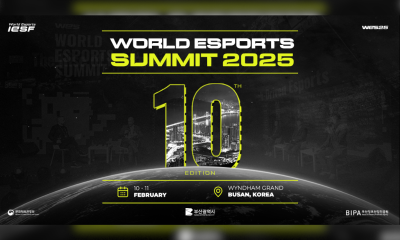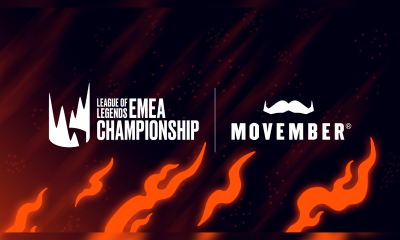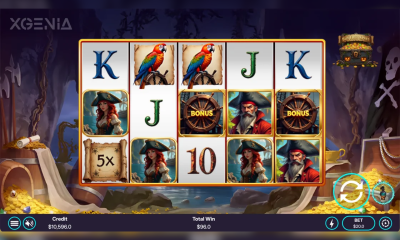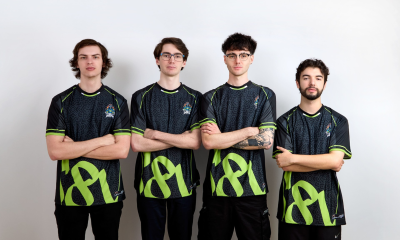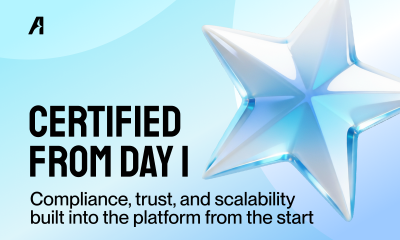eSports
R&D rethink needed for sportsbooks to harness esports’ power

 Esports betting is still grappling with a perception problem amongst operators. Despite the leaps and bounds in product development made by suppliers – particularly in the last two years – esports hasn’t shaken off the image built in the late 2010s.
Esports betting is still grappling with a perception problem amongst operators. Despite the leaps and bounds in product development made by suppliers – particularly in the last two years – esports hasn’t shaken off the image built in the late 2010s.
Our good friend, Oliver Niner, Head of Sales at PandaScore, has been kind to share the below article with us.
There’s scepticism around esports betting’s value, how well it can actually perform and what’s needed to make it appeal to bettors. A big part of that comes down to perception, which shapes the research and development (R&D) choices made by each operator.
Self-fulfilling prophecy?
Operators who have put the research and development (R&D) resources into esports are seeing excellent growth, while others are still treating it like part of a long tail. The lack of a uniform approach to esports often translates into hesitancy to be bullish and invest in esports.
Whereas in the United States, post-PASPA sports betting has exploded and operators are seeking to capture as much territory and market share as possible because in most cases, you switch the lights on and the money comes in. It’s, of course, good business sense to take opportunities like this – you can apply the same templates used elsewhere on an incredibly lucrative market.
This kind of approach has been attempted for esports and hasn’t found the same success. Granted, the legislation for betting on esports has been somewhat slower than that of sports betting and iGaming.
However, bullish operators have acknowledged the fact that esports hasn’t found the same success in regulated states and asked what can be done differently, while for others, esports has been thrown into the too-hard basket or relegated to the bargain bucket.
For the latter, the fate of the esports vertical becomes a self-fulfilling prophecy – especially if an operator already using a budget esports product that throttles its very growth.
It takes two to tango
When esports is discussed in broader betting circles, you’ll often hear different versions of the same talking point: the problem with esports is no one is doing it well, it doesn’t innovate.
This argument is a case of the pot calling the kettle black. Esports is a driver of innovation, and it is sportsbook R&D that is holding it back.
Multiple suppliers on the market are investing significant resources into R&D, and bullish operators are leveraging these product innovations to acquire new customers and create engagements made for the internet age.
There are understandable reasons why sports betting doesn’t innovate. It’s largely because operators focus on acquisition, entering new territories and spending money on data rights. But the actual R&D on sportsbook products is left lacking, with ever-increasing cost-per-acquisition (CPA) numbers a clear symptom of this.
It means that if an operator does decide to use or acquire an esports specialist supplier but does little to cater its product and attempts to just lay the sports betting template over the top, of course performance will be throttled.
It’s like putting a Ferrari engine in a Prius – no offence to Toyota or Prius owners.
The same problem exists on the platform supplier front. Platforms are understandably focused on compliance and getting customers live, not necessarily improving models or their products.
Even the idea that if you just acquire an innovative company the problem is solved or you have found the solution, doesn’t hold water. In many cases, the company is acquired and plenty of noise is made about it, but there’s little organisational investment in R&D afterwards.
It’s not just in esports
These problems extend to customer acquisition and marketing for most emerging markets, not just esports. There’s a rush to use the same old playbook in newer sectors because it’s easy.
The fantasy vs. house sector in the US is already experiencing an acquisition arms race. As analyst Dustin Gouker points out, deposit match bonuses for new users on fantasy vs house products have jumped from $100 to as high as $500 in some places.
This is the same race that played out in sports betting and despite the costs, there’s little effort from most operators to try something different. There’s less work when you just put the same acquisition template on an emerging sector and call it a day. This seems to be an accepted practice in the industry, for better or for worse.
Esports betting success requires ongoing dialogue
Rather than attempting to wedge esports into hegemonic sportsbook approaches, sportsbooks need to take a completely unique approach.
The fact is the betting sector has barely scratched the surface – communities of esports fans are still dormant. Canadian operator Rivalry has built a successful, esports-first business by embracing the ever-changing internet culture that esports inhabits. French esports organisation Karmine Corp recently sold out a 30,000-person stadium for an event with no prize money up for grabs.
Innovative products developed on the supplier side like microbetting and betbuilders are only half of the equation.
Maximising esports revenues requires institutional investment, ongoing R&D and collaboration between suppliers and operators to create products and experiences. This includes having staff on the operator side that can drive and push the product further, and crucially, rethinking current sportsbook strategies and practices.
Building experiences for betting’s greatest emerging market – one that caters to your future core audience – takes investment, innovation and a willingness to experiment. If the industry wants to make the most of the Millennial and Gen Z audience that will become its primary customers, investment into R&D and close collaboration between suppliers and operators is needed. Many hands makes light work.
eSports
$75 Million Prize Pool, Full Game Lineup and Schedule Announced for Esports World Cup 2026
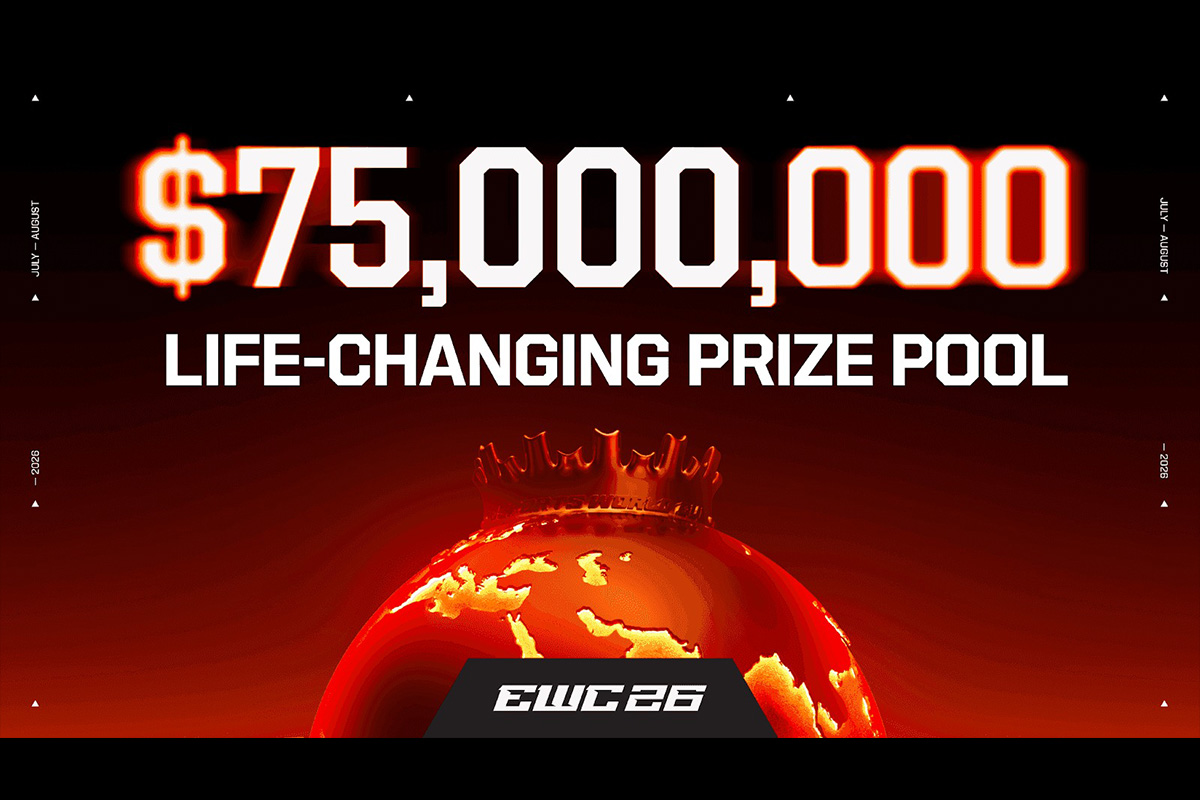
The Esports World Cup Foundation (EWCF) announced a total prize pool of $75 million alongside the full game lineup and schedule for the Esports World Cup 2026 (EWC), the world’s largest esports event, set to return to Riyadh, Saudi Arabia, from July 6 through August 23. More than 2000 players and 200 Clubs from over 100 countries will compete in 25 tournaments across 24 games over seven weeks to crown the next Esports World Cup Club Champion.
The record-breaking prize pool reflects the evolution of the EWC as a premier sporting event and the anchor multi-title competition within the global esports ecosystem. Delivered at scale for a third year through an established, cross-game format, the EWC brings together the world’s best players, Clubs, games and a global community of fans through a shared calendar that sets the rhythm of the global esports season.
“The life-changing prize pool exists to support the people at the heart of esports: the players and the Clubs that invest in them year after year. EWC is different because of the Club Championship. One title crowns a champion. EWC crowns the ultimate cross-game Club Champion,” said Ralf Reichert, CEO of the Esports World Cup Foundation.
In 2026, the EWC Club Championship, the EWC’s flagship cross-game competition, will award $30 million to the top 24 Clubs, an increase of $3 million year-on-year. The winning Club will receive $7 million, with increased prize allocations distributed across the remaining top finishing positions. Last year’s Club Championship title was decided in the final week of competition, with seven Clubs remaining in contention entering the closing stages.
Individual Game Championships will each carry their own prize pools, with combined allocations exceeding $39 million. The remainder of the prize pool will be distributed through a combination of Club and Player Awards, including MVP awards for each tournament and the Jafonso Award for players or Clubs that win a Game Championship after advancing from a Last Chance Qualifier, as well as through qualifying events hosted by partnered publishers and organizers ahead of the EWC 2026 main event in Riyadh.
Alongside the prize pool, EWCF will continue to operate ecosystem support programs, including the EWCF Club Partner Program and the Road to EWC qualification system. The 2026 Club Partner Program will again support a lineup of 40 top global esports organizations, while publisher-led circuits, tournaments, and grassroots events provide the foundation for the Road to EWC, giving more players and Clubs defined qualification pathways to compete in Riyadh.
Twenty-four competitive titles, including new additions Fortnite and Trackmania, will showcase the best Clubs, players and talent the esports world has to offer on stage at EWC 2026 in Riyadh this summer. The EWC 2026 lineup of games features: Apex Legends, Call of Duty: Black Ops 7, Call of Duty: Warzone, Chess, Counter-Strike 2, Crossfire, Dota 2, EA Sports FC 26, FATAL FURY: City of the Wolves, Fortnite, Free Fire, Honor of Kings, League of Legends, Mobile Legends: Bang Bang, Overwatch 2, PUBG: Battlegrounds, PUBG Mobile, Rocket League, Street Fighter 6, Teamfight Tactics, TEKKEN 8, Tom Clancy’s Rainbow Six Siege X, Trackmania, and VALORANT.
EWC 2026 competitions will be staged across seven weeks and multiple arenas, allowing several game championships to take place in parallel with a coordinated, multi-venue schedule designed to enhance fan experience and viewership across the lineup.
Tickets for EWC 2026 will be available at esportsworldcup.com, and through EWC 2026 international ticketing partners: Webook, Platinumlist, Damai, Maiseat, and Tixr. Early Bird tickets include Weekly Access Passes, Premium Tournament Passes, and Hospitality Packages for the Esports Embassy, the EWC’s premium on-site hospitality destination.
The announcement builds on the landmark success of the Esports World Cup 2025. In its second year, EWC reached 750 million viewers worldwide and generated 350 million hours watched, with peak concurrent viewership of 7.98 million during the League of Legends at EWC ‘25 tournament. Coverage was delivered across 28 platforms through 97 broadcast partners and more than 800 channels in 35 languages. Twenty-five tournaments spanning 24 games featured more than 2000 players representing approximately 200 Clubs from over 100 countries. In Riyadh, the EWC and its Festival welcomed more than 3 million visitors over the seven-week event.
The post $75 Million Prize Pool, Full Game Lineup and Schedule Announced for Esports World Cup 2026 appeared first on Eastern European Gaming | Global iGaming & Tech Intelligence Hub.
Asia
World Esports Summit Celebrates Its 10th Edition in Busan
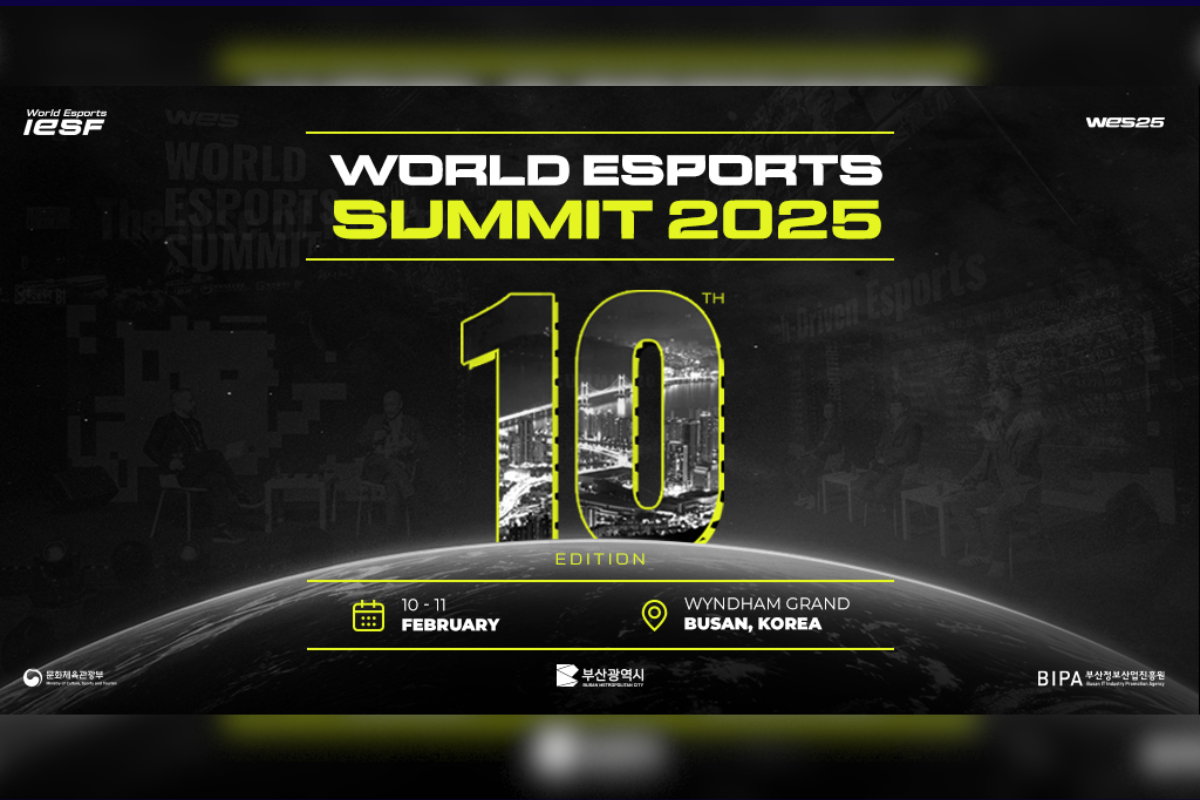
The World Esports Summit returns to Busan, South Korea, for its 10th edition, taking place on 10–11 February 2025.
Hosted at the Wyndham Grand Busan, the Summit will bring together 40+ speakers from the international esports ecosystem, including representatives from federations, publishers, global brands, sports organizations, technology companies, and public institutions.
Over the past decade, the World Esports Summit has provided a platform for dialogue and cooperation among stakeholders shaping the world of esports. The 2025 edition will continue this role, offering space for discussion on current developments, industry challenges, and future directions.
The Summit will feature contributions from a wide range of organizations, including Alibaba, FIBA, FIFAe, Tencent, Moonton, NetEase, FIA, Sportradar, EFG, Good Game, Telekom, among others.
Across two days, participants will take part in keynote sessions and panel discussions addressing topics such as esports governance, international collaboration, industry development, integrity, and the continued convergence of esports and traditional sports.
Further information on the program, speakers, and registration is available on the official World Esports Summit website.
The post World Esports Summit Celebrates Its 10th Edition in Busan appeared first on Eastern European Gaming | Global iGaming & Tech Intelligence Hub.
Age of Empires competitive
Team Vitality Enters Age of Empires II Esports with Star-Studded Roster
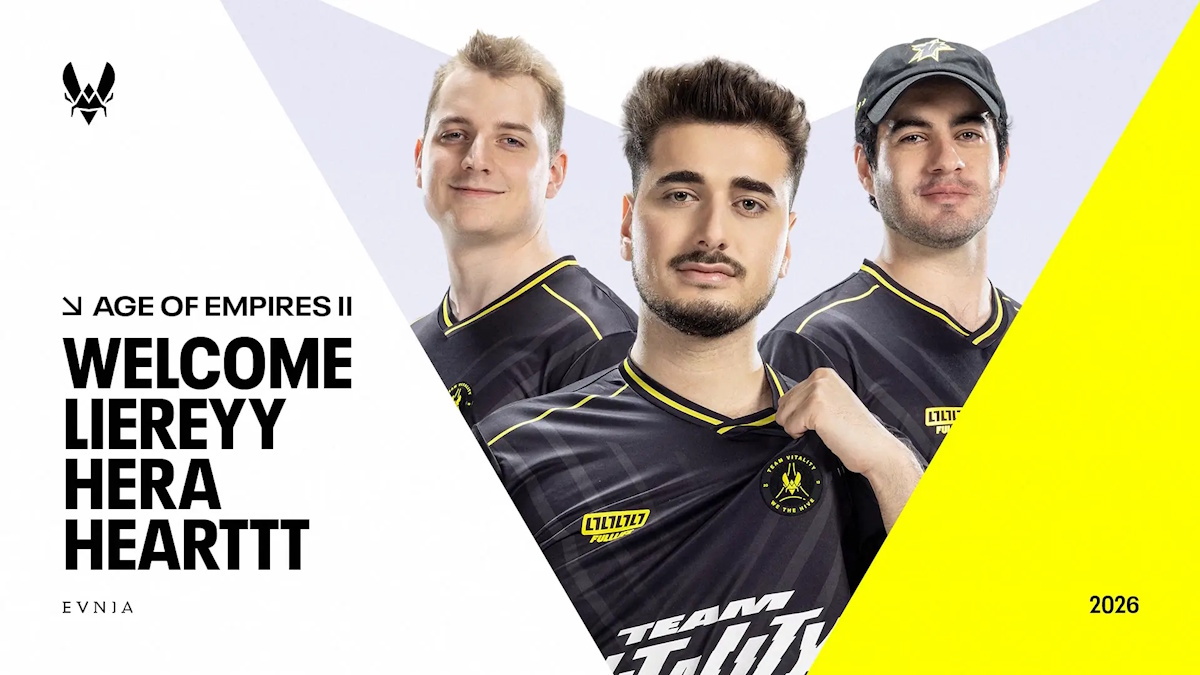
Team Vitality, one of the most influential names in modern esports, has officially announced its entry into the Age of Empires II competitive scene. This marks a major milestone: the merging of a contemporary esports powerhouse with one of the most iconic real-time strategy franchises in history.
Aiming for the Throne: Star-Studded Roster
Team Vitality isn’t just entering for exposure — they are targeting dominance. The team has assembled a roster featuring three of the most decorated players in Age of Empires II history:
- Hamzah “Hera” El-Baher – The Golden Boy
Known for his unmatched consistency and strategic mastery, Hera defines the modern AoE era. In 2023, he achieved a historic 14-tournament winning streak in S-Tier events. Fresh off his Red Bull Wololo: El Reinado 2024 victory, the current Player of the Year is set to continue his reign under the Vitality banner. - Kai “Liereyy” Kallinger – The Archer God
Renowned for exceptional micro-management and aggressive play, Liereyy brings mechanical perfection and explosive strategies to the squad. A multi-time Red Bull Wololo Champion (II & IV), the Austrian star is widely regarded as one of the most spectacular talents in the game’s history. - Hernán “Hearttt” Pizarro – The Veteran Strategist
With a professional career dating back to 2012 and 80+ tournament appearances, Hearttt is the rock of the team. Named Comeback Player of the Year 2023, the Peruvian strategist provides depth, resilience, and unparalleled tactical insight.
First Major Appearance: Red Bull Wololo 2026
Team Vitality’s AoE II roster will make its competitive debut at Red Bull Wololo 2026: Londinium, one of the most prestigious events on the global RTS calendar. Fans can expect high-level strategic gameplay and the start of Vitality’s quest for world championship titles in the genre.
“At Team Vitality, our expansion is always driven by a certain ambition: to compete for and win World Championships in the world’s most iconic games. Age of Empires and our new superstar lineup align perfectly with that vision… We are honored to be part of this history and can’t wait to welcome AoE fans into the Vitality Hive.” — Danny Engels, Corporate Director, Global Operations, Team Vitality
Why This Matters
Team Vitality’s entry into Age of Empires II is a significant moment for the RTS esports ecosystem:
- It bridges legacy RTS titles and modern esports organizations.
- Brings global visibility to Age of Empires II tournaments.
- Sets the stage for strategic showdowns at major international events.
With Hera, Liereyy, and Hearttt, Team Vitality is positioned to challenge for the top spots in competitive AoE II and potentially reshape the RTS landscape for years to come.
The post Team Vitality Enters Age of Empires II Esports with Star-Studded Roster appeared first on Eastern European Gaming | Global iGaming & Tech Intelligence Hub.
-

 AI5 days ago
AI5 days agoPrimero Games Uses XGENIA for Their First AI-Generated Slot Game
-

 Baltic Tech Week5 days ago
Baltic Tech Week5 days agoHIPTHER Baltics Announces Riga Event and Strategic Partnership with LexLegas
-

 Balkans5 days ago
Balkans5 days agoKiril Kirilov takes on new leadership role at CT Interactive
-

 ALGS 2026 Championship5 days ago
ALGS 2026 Championship5 days agoS8UL Esports secures historic top five finish at ALGS 2026 Championship; bags INR 1 crore in prize money
-

 Compliance Updates5 days ago
Compliance Updates5 days agoSEON Launches Identity Verification Built on Real-Time Fraud Intelligence
-

 College Sport Prediction Markets5 days ago
College Sport Prediction Markets5 days agoNCAA Urges CFTC to Suspend College Sport Prediction Markets
-

 EMEA ESPORTS4 days ago
EMEA ESPORTS4 days agoMOVEMBER TEAMS UP WITH RIOT GAMES EMEA ESPORTS
-

 Latest News5 days ago
Latest News5 days agoCertified Platforms: Why Operators Choose Them Early





